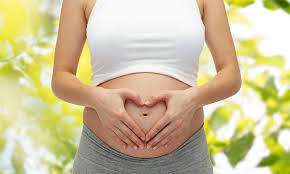
Pregnancy is a stage with special nutritional needs that the mother must satisfy through a balanced diet.
The best diet in pregnancy is the intake of varied foods that provide quality nutrients.
Being pregnant does not mean you have to eat for two people.
It is not necessary to eat much more, but rather to have a balanced intake of nutrients. Foods must be rich in nutrients and vitamins such as folic acid, iron, calcium, and iodine, but low in fats.
The recommended intake during pregnancy is around 2,000 calories a day, 70% of the diet should be made up of cereals, bread, pasta, preferably whole grains.
At least five daily servings of fruits and vegetables. Two to three servings of protein and two to three servings of skim milk. With a well-balanced diet, the body will receive the amount of energy it needs for the baby to develop properly.
Consuming several servings of food a day is ideal.
It is preferable to consume small servings several times a day to promote digestion and combat the heaviness and heartburn typical of pregnancy, and remember to chew your food well.
Choose healthy snacks such as fruit or dairy to eat throughout the day between breakfast and lunch or between snack and dinner, thus extending from four to six meals a day.
Some good food options:
Fish.
It is an important source of omega 3 and omega 6, essential nutrients in pregnancy, but avoids the large species that may contain mercury such as bluefin tuna and emperor fish, prefer blue and white fish that can be eaten safely, such as albacore tuna, salmon, hake and sole. Consumption of raw fish such as sushi or sashimi is not recommended.
Ham.
It has always been associated with the risk of toxoplasmosis, but recent research has ruled out this relationship. If the ham is cured (more than 14 months) and treated and there seems to be no risk. In any case, follow the recommendations of your treating physician.
Eggs.
Cook eggs well to minimize the risk of food poisonings such as salmonella.
Way of cooking the food.
Avoid adding too much salt when cooking.
Grilling is one of the healthiest ways, especially for meats and vegetables, as they retain their nutritional values without the need for added oils.
If you choose to boil food, introduce it when the water is very hot and in large pieces to reduce the loss of vitamins and nutrients.When cooking in the oven, the amount of oils and fats added to the food must be controlled. Frying should be restricted to once a week and always in olive oil.
When it comes to seasoning food, the best seasoning is undoubtedly olive oil. It contains antioxidants and oleic acid that helps keep cholesterol levels under control and helps in bone growth.
Finally, remember that these healthy eating tips must be maintained even after giving birth.
We believe in the New Earth Shift towards a sustainable lifestyle that creates our own resources and is moving towards self-governance between the people. This will enable people to have more time for themselves and their practice as well as taking care of the planet and learn the traditional ways that once lead the land.
http://ResonanceCR.com/
